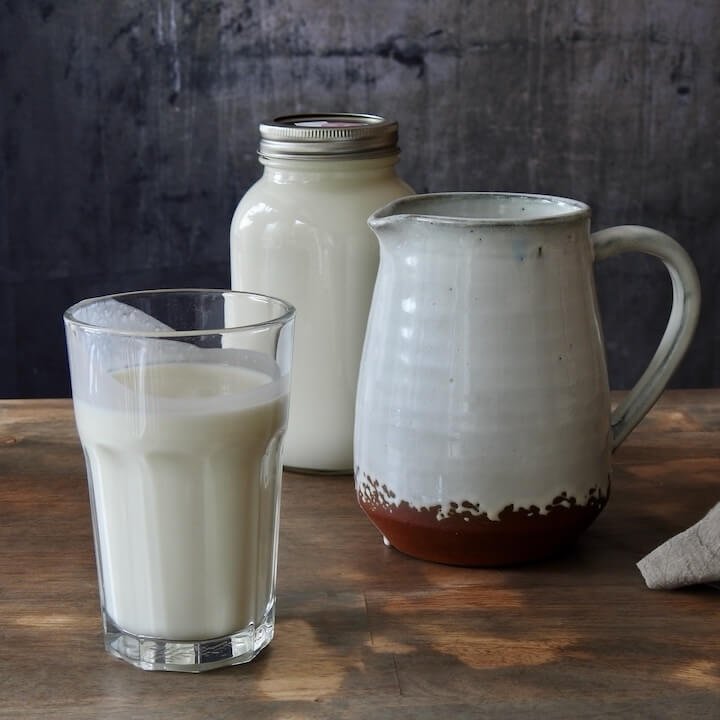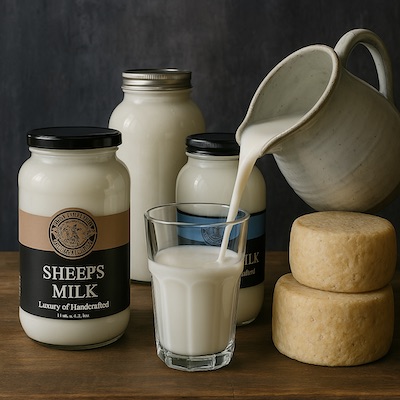Why Sheep’s Milk Dairy and Cheese Are The Smart Choice
Sheep milk contains one-third more energy than cow or goat milk (making it a favorite of high-performance athletes). It has double the protein and much more of the right kinds of fats (Omega 3 & 6 fatty acids).
Monounsaturated fats are lower in total cholesterol and LDL cholesterol (the bad cholesterol) while increasing HDL cholesterol (the good cholesterol).
Polyunsaturated fats also are lower in total cholesterol and LDL cholesterol.
The fat globules in sheep milk are smaller than those in either cow or Goatmilk. The smaller fat globules are easily digested and less likely to cause high cholesterol

Health Benefits

Longevity
The consumption of sheep milk leads to longevity. Bulgarian shepherds noted exceptionally long lives, presumably from a diet of their sheep’s milk products. There is increasing evidence that sheep milk has extraordinary health potential.
Boosting Calcium Absorption
Calcium absorption is essential for many body functions, including maintaining bone density and preventing osteoporosis with aging.
Allergies
Sheep milk is recommended for those suffering eczema, asthma, or other allergic illnesses. It has uniquely high levels of peptides, and nucleosides may help combat allergies.
Lowering Blood Pressure
Research suggests that the high concentrations of some amino acids in sheep’s milk make it a natural replacement for blood pressure-lowering drugs.
Lactose Intolerance
People who develop intolerance to cow or goat milk could find that sheep milk product is the only ONE they can safely eat. During the production of hard cheeses, the lactose is set free in the discarded whey.
Lowering Blood Pressure
Research suggests that the high concentrations of some amino acids in sheep’s milk make it a natural replacement for blood pressure-lowering drugs.
Nutrients
Sheep’s milk is exceptionally high in nutrients. The superiority lies in comparison with cow and goat milk, especially between levels of critical nutrients like:
protein, calcium, iron, magnesium, zinc, thiamine, riboflavin, phosphorus, Vitamins B6, B12, and D, Vitamin C, Folic Acid (folate), Medium-Chain Amino Acids, Linoleic Acids, and all of the ten essential Amino Acids.
Facts: Two cups of sheep milk, or 93g of sheep cheese, provide the daily human requirement of calcium, riboflavin, and five essential amino acids.
Digestion
The evidence for sheep Milk, Yogurt, and Kefir is an excellent base for easily digestible products for infants and the elderly. Studies have found sheep proteins are hydrolyzed (decomposed by reacting with water) faster than cows’ proteins due to the minor differences in their structure.
Fighting Cancer and Repairing Damaged Cells
The compounds of nucleosides and nucleotides are incredibly rich in sheep milk, with levels often 50-100 times higher than cow or human milk.
Several studies have demonstrated fighting cancer-related diseases and promoting healthy cell growth, and treating a wide variety of gut conditions, including damage from non-steroidal anti-inflammatory drugs.



